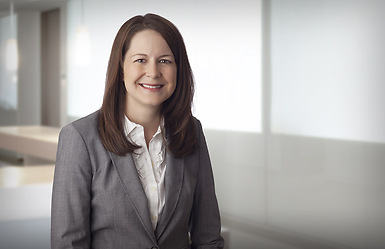The Office of Medicare Hearings and Appeals (OMHA) recently informed a number of Medicare providers and suppliers with appeals pending at the Administrative Law Judge (ALJ) level that the already long wait until their “day in court” would get even longer. OMHA is the central Medicare office that was created in 2005 to streamline and expedite the ALJ appeals process. Ironically, it announced last month in a letter to nearly 900 providers and suppliers that as of July 15, 2013, it had suspended the assignment of most new appeals to ALJs to allow the ALJs to process faster the growing number of appeals. OMHA stated in its letter that it does not expect to resume assigning cases for at least 24 months (January 2016 or later). Once OMHA resumes assigning cases, appellants should expect to wait an additional six months or longer for a hearing date. Appeals filed by individual beneficiaries will continue to be assigned and prioritized for resolution.
In the letter, the Chief ALJ for OMHA explained that OMHA’s workload has grown by 184 percent since 2010. What was once a backlog of 92,000 claims under appeal has grown to 460,000 claims. Weekly receipts of hearing requests grew from 1,250 in January 2012 to over 15,000 per week in December 2013. In addition to the exponential growth in hearing requests, OMHA cited budgetary sequestration as another cause for the backlog. The current wait time for ALJ hearings has increased to 16 months, and OMHA expects it to continue to climb. As a point of reference, the statutory time frame within which ALJs must issue a decision on an appeal is 90 days after the date of the hearing request. There is no question that the 90-day statutory time frame is being ignored by CMS in nearly all cases.
One likely reason for the increase in hearing requests is that providers and suppliers have been increasingly successful in appealing Recovery Audit Contractor (RAC) denials at the ALJ level. Some trade groups report that providers/suppliers prevail in 70 percent or more of such cases. OMHA did not comment on provider/supplier success rates in its December 2013 letter.
The delay in processing creates a cash flow issue for providers/suppliers with significant dollars at stake. The current Medicare regulations permit the Medicare contractor to begin to recoup amounts at issue after the level immediately before the ALJ level — i.e., when the Qualified Independent Contractor issues a reconsideration decision. In other words, even if a Medicare provider/supplier is successful at the ALJ level, under the current processing time frames, the provider/supplier will wait over two and a half years to be repaid. The American Hospital Association and other trade groups have urged CMS to revise the recoupment regulations in light of OMHA’s December 2013 letter.
What is a provider/supplier to do? Here is our advice and perspective:
-
Continue to appeal denials of claims for services that were provided. Keep excellent documentation of what and when you appeal and the documentation involved in each case. CMS must resolve all appeals through the administrative appeals process. Your appeal will be processed, albeit much later than you originally anticipated. With any luck, as the ALJs become educated on the improper denials RACs and other contractors continue to make, they will be more likely to issue fully favorable rulings for providers/suppliers on the record (i.e., without a hearing).
-
If you have a large appeal involving sums where recoupment could imperil your organization, consider involving a legislator or contacting your CMS Regional Office or the national CMS office in Baltimore to explore moving ahead in line at OMHA.
-
Contact your legislators and trade groups to lobby CMS to (i) develop alternative means for quickly and properly resolving appeals, (ii) educate its contractors on the proper interpretation of Medicare regulations and conditions of payment, so as to avoid more unjustified denials, and (ii) relieve providers/suppliers of recoupment of amounts at issue until after the ALJ level.
-
Attend or listen as a webinar participant to the OMHA Medicare Appellant Forum on February 12 in Washington, D.C. to learn more about the initiatives underway to resolve the appeal backlog and discuss how to make the appeals process work more efficiently.
-
Some people have asked whether it makes sense to help the beneficiary file the appeal because OMHA continues to process and prioritize such appeals. We strongly discourage this approach. Providers/suppliers who involve beneficiary as a means of moving ahead in line will harm their credibility with the judge.
-
Stay tuned for more updates via FredALERTS and our monthly webinar series. For more information, please visit our Health Law Group page. We will continue to update you on developments with OMHA and the Medicare appeals process. If you have any questions, please contact Katie Ilten or David Glaser.


